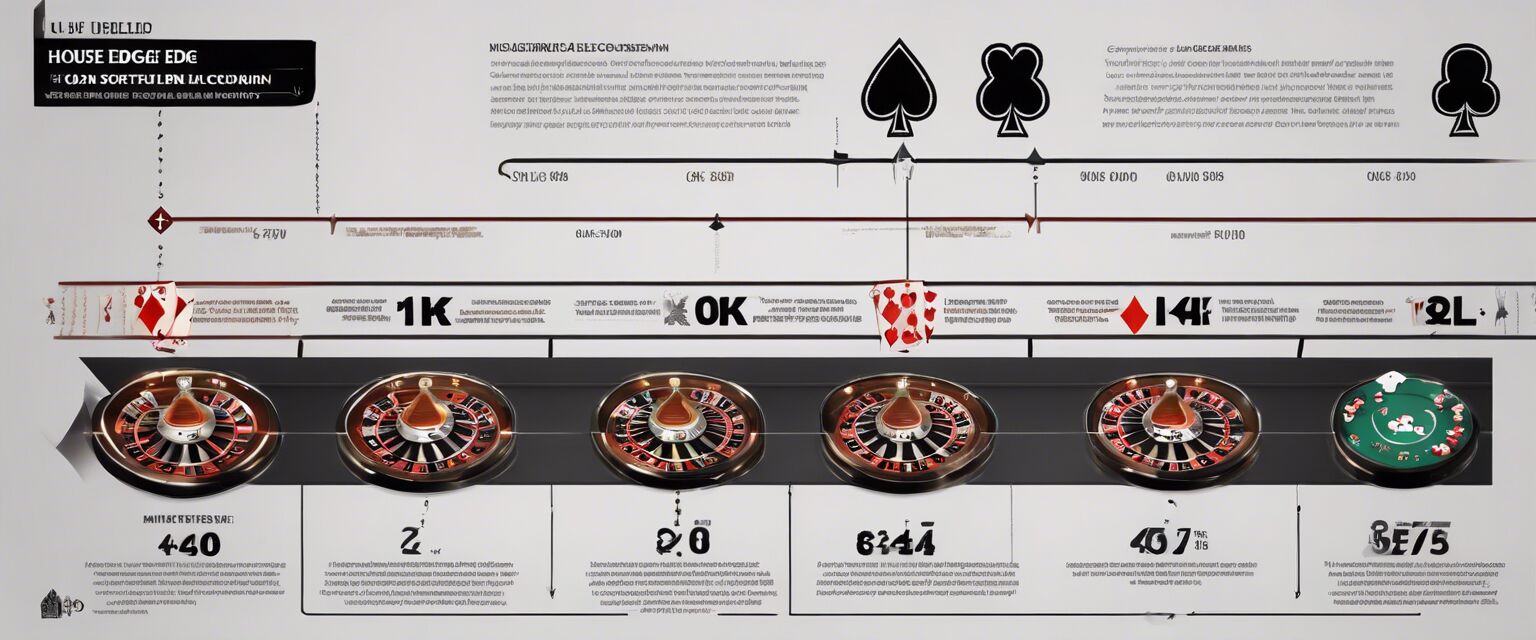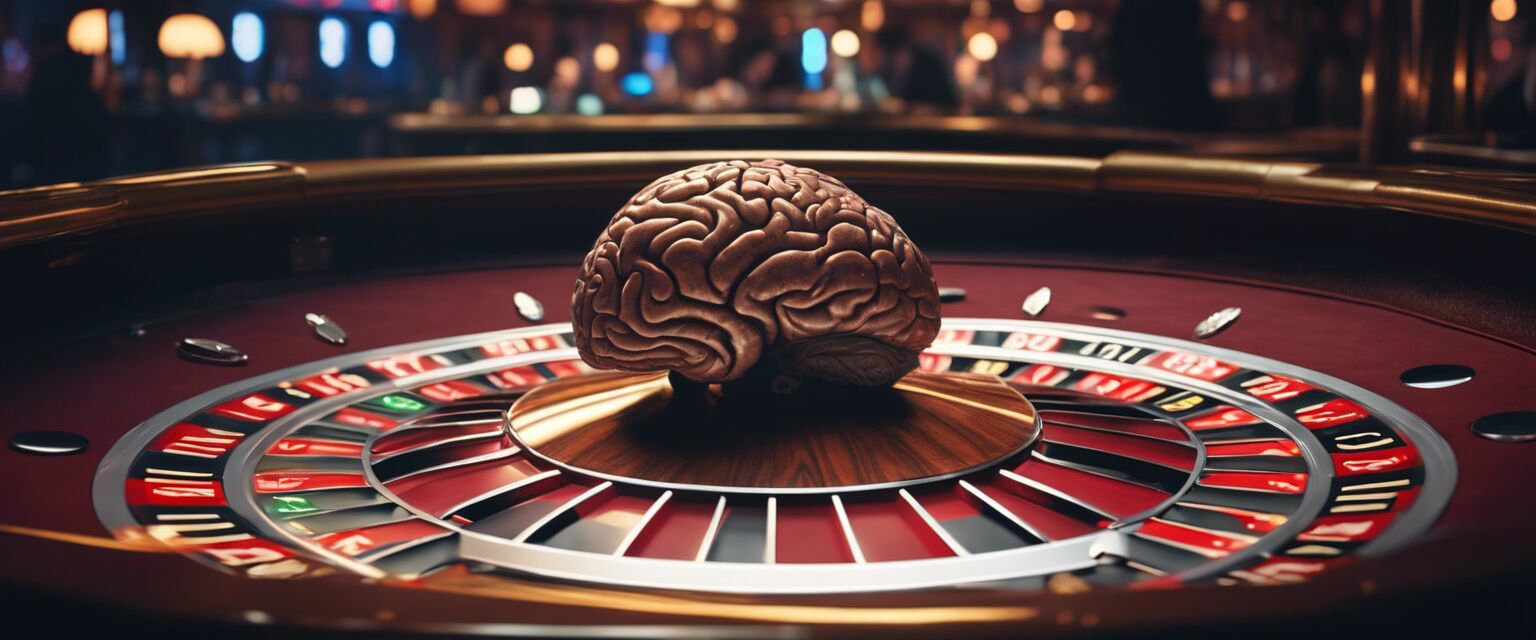
Gambling Math and Odds
Understanding the mathematical principles and odds behind gambling can often be the key to becoming a more informed player. In this article, we will discuss important mathematical concepts, their applications in various gambling scenarios, and how they are represented in literature. Let's dive into the world of gambling math!
Key Takeaways
- Odds represent the likelihood of an event occurring in gambling.
- Different games use different mathematical principles to determine odds.
- Understanding probabilities can enhance your gambling strategies.
- Mathematical approaches can reveal insights into the odds of winning as well as the house edge.
Understanding Odds
In gambling, odds can be expressed in various formats, such as fractional odds, decimal odds, and moneyline odds. Each format provides a different perspective on the probability of an event occurring.
| Odds Format | Understanding | Example |
|---|---|---|
| Fractional Odds | Expressed as a fraction, indicates the profit relative to the stake. | 5/1 means for every $1 bet, you will win $5. |
| Decimal Odds | Represents the total payout including the stake. | 6.00 means winning $6 for every $1 bet (including the stake). |
| Moneyline Odds | Shows how much you can win on a $100 bet (positive) or how much you need to bet to win $100 (negative). | +500 means a $100 bet wins $500; -200 means you need to bet $200 to win $100. |
Mathematical Principles in Gambling
Mathematics plays a critical role in gambling, as it allows players to evaluate risks, make decisions, and calculate potential returns. Below are some fundamental mathematical concepts that are often discussed in gambling literature:
- Probability: The likelihood of an event occurring, often expressed as a ratio or percentage.
- Expected Value: A calculation that predicts the average outcome of a bet over time.
- Variance: A measurement of the dispersion of outcomes, important for understanding risk.
- House Edge: The mathematical advantage that the casino has over players, ensuring profitability.
Understanding Probability
Probability is a foundational concept in gambling math. It can help players assess their chances of winning and make more informed decisions. Probability is calculated as follows:
| Event | Probability Formula | Example |
|---|---|---|
| Single Die Roll | 1 / Total Outcomes | 1/6 chance of rolling a three. |
| Coin Flip | 1 / Total Outcomes | 1/2 chance of flipping heads. |
Applying Odds and Mathematics in Various Games
Different gambling games utilize mathematical principles differently. Hereâs a look at a few popular games and the math behind them:
Roulette
In roulette, players bet on where a ball will land on a spinning wheel. The odds are determined by the number of pockets on the wheel.
| Bet Type | Odds of Winning | Payout |
|---|---|---|
| Red or Black | 18/38 or 47.37% | 1:1 |
| Single Number | 1/38 or 2.63% | 35:1 |
Blackjack
In blackjack, understanding your odds can lead to better decision-making regarding hitting or standing.
- If you have a total of 16 against a dealer's 10, hitting might have a probability of about 60% to bust.
- Understanding card counting can enhance your ability to gauge odds.
House Edge Explained
The house edge is an essential concept for gamblers. It demonstrates the average percentage of each wager that a casino expects to keep over time.

Hereâs a breakdown of the house edge in popular casino games:
| Game | Typical House Edge |
|---|---|
| Slot Machines | 2% - 15% |
| Blackjack | 0.5% - 2% |
| Roulette | 5.26% |
Strategies and Techniques
Applying mathematical principles to gambling strategies can lead to more favorable outcomes. Here are a few tips to enhance your gambling experience:
Beginner's Tips
- Start with games that have a low house edge.
- Understand the probability behind your bets before placing them.
- Track your wins and losses to better understand your performance.
- Set a budget and stick to it to minimize losses.
Conclusion
Understanding the relationship between gambling math and odds can significantly enhance your gambling experience. By applying mathematical principles, players can improve their decision-making and strategies in various games. Whether you're a beginner or an experienced gambler, having knowledge about mathematical odds and probabilities can give you an edge in the casino.
Pros
- Improves decision-making skills.
- Enhances overall enjoyment of games.
- Helps manage expectations effectively.
- Enables players to identify better betting opportunities.
Cons
- May create overconfidence in winning.
- Requires dedication and study.
- Can be confusing if not well understood.

For more insights into gambling strategies, check out our Strategy Guides page, and see how you can further improve your gambling techniques.








